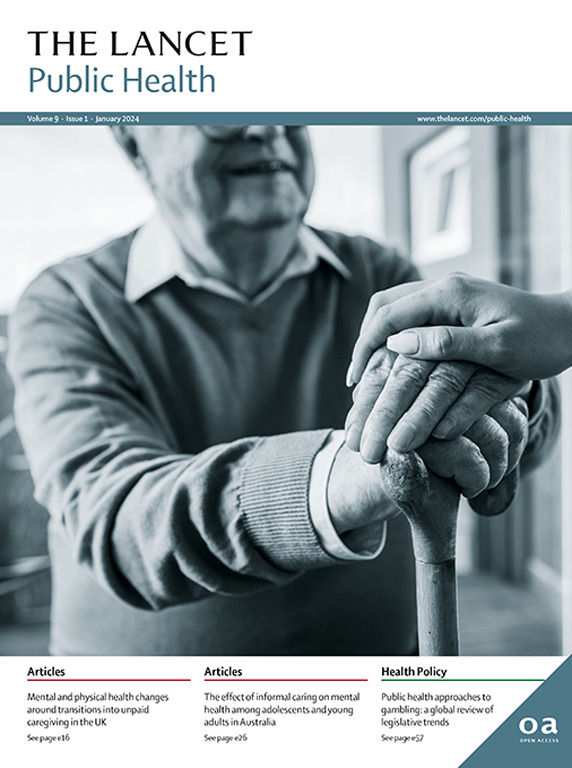Outreach health-care services for people experiencing exclusion in high-income countries
IF 25.2
1区 医学
Q1 PUBLIC, ENVIRONMENTAL & OCCUPATIONAL HEALTH
引用次数: 0
Abstract
Inclusion health aims to prevent and address health and social inequalities for people experiencing exclusion, such as people experiencing homelessness, people who have a history of contact with the criminal justice system, people who use drugs, sex workers, vulnerable migrants, victims of modern slavery and human trafficking, and Romany Gypsy, Roma, and Travellers communities. These populations have poor health outcomes and disproportionate health inequities, partly resulting from inadequate health-care access. Outreach services can improve health-care access, but there is little evidence of how outreach operates successfully. We conducted a realist review of multicomponent outreach health-care services to understand the circumstances under which outreach works for people experiencing exclusion and why. Key components of effective outreach include person-centred services and appointments, staff expertise, high-quality communication, and close partnership with people experiencing exclusion and relevant organisations. Service users are likely to develop trust and further engage through positive experiences and regular interaction with the same staff.为高收入国家遭受排斥的人提供外展保健服务
包容性卫生旨在预防和解决遭受排斥的人群的健康和社会不平等现象,例如无家可归者、有刑事司法系统接触史的人、吸毒者、性工作者、弱势移民、现代奴隶制和人口贩运的受害者以及罗姆吉卜赛人、罗姆人和游民社区。这些人群的健康状况不佳,卫生不公平现象严重,部分原因是获得卫生保健的机会不足。外联服务可以改善获得保健服务的机会,但几乎没有证据表明外联服务是如何成功运作的。我们对多组分外展医疗保健服务进行了现实审查,以了解外展服务对遭受排斥的人起作用的情况及其原因。有效外联的关键组成部分包括以人为本的服务和预约、员工专业知识、高质量的沟通以及与遭受排斥的人和相关组织的密切合作。服务用户可能会通过积极的体验和与同一工作人员的定期互动建立信任和进一步参与。
本文章由计算机程序翻译,如有差异,请以英文原文为准。
求助全文
约1分钟内获得全文
求助全文
来源期刊

Lancet Public Health
Medicine-Public Health, Environmental and Occupational Health
CiteScore
55.60
自引率
0.80%
发文量
305
审稿时长
8 weeks
期刊介绍:
The Lancet Public Health is committed to tackling the most pressing issues across all aspects of public health. We have a strong commitment to using science to improve health equity and social justice. In line with the values and vision of The Lancet, we take a broad and inclusive approach to public health and are interested in interdisciplinary research.
We publish a range of content types that can advance public health policies and outcomes. These include Articles, Review, Comment, and Correspondence. Learn more about the types of papers we publish.
 求助内容:
求助内容: 应助结果提醒方式:
应助结果提醒方式:


